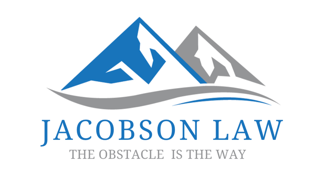Business Law Firm can help ease legal challenges facing your business
A business Law Firm in Boise and Nampa ID can help you navigate the common legal challenges of businesses in the healthcare industry in Idaho. The healthcare industry is a complex and highly regulated field, and businesses operating within it often face a myriad of legal challenges. In Idaho, as in many other states, these challenges can be particularly daunting due to the state’s specific healthcare laws and regulations. In this article, we will explore some common legal challenges faced by businesses in the healthcare industry operating in Idaho.
- Regulatory Compliance
One of the most significant legal challenges for healthcare businesses in Idaho is ensuring compliance with the state’s extensive healthcare regulations. Idaho has its own set of rules and requirements governing healthcare providers, insurers, and facilities. These regulations cover everything from licensure and certification to billing and record-keeping. Staying up-to-date with these ever-changing regulations can be a daunting task for healthcare businesses.
- Licensing and Credentialing
Healthcare professionals and facilities in Idaho must obtain appropriate licenses and credentials to operate legally. Licensing requirements can vary depending on the type of healthcare service provided. For example, physicians, nurses, and other healthcare practitioners need to obtain licenses from the Idaho Board of Medicine or the Idaho Board of Nursing. Failure to maintain proper licensure can lead to severe legal consequences, including fines and closure of the business.
- Healthcare Privacy Laws
The federal Health Insurance Portability and Accountability Act (HIPAA) sets strict standards for protecting patients’ health information. In addition to federal law, Idaho has its own healthcare privacy laws. Healthcare businesses must navigate the complexities of HIPAA and state laws to ensure patient confidentiality and avoid legal disputes related to privacy breaches.
- Medicaid and Medicare Compliance
If a healthcare business in Idaho accepts Medicaid or Medicare payments, it must adhere to specific regulations governing these federal programs. Compliance with Medicaid and Medicare rules is essential to avoid allegations of fraud and abuse, which can result in severe penalties and exclusion from these programs.
- Employment and Labor Laws
Like businesses in other industries, healthcare businesses must comply with federal and state employment and labor laws. These laws cover areas such as wage and hour regulations, workplace safety, and discrimination. Healthcare businesses must ensure that their employment practices are in line with Idaho’s legal requirements to prevent legal disputes and potential lawsuits.
- Antitrust Issues
Antitrust laws are designed to promote fair competition and prevent monopolistic practices. Healthcare businesses, particularly large hospital systems, must be cautious to avoid antitrust violations, such as price-fixing and anti-competitive mergers. Violations can result in significant fines and legal repercussions.
- Telemedicine Regulations
Telemedicine has become increasingly important in the healthcare industry, especially in light of the COVID-19 pandemic. Idaho, like many states, has specific regulations governing the practice of telemedicine. Healthcare businesses offering telehealth services must comply with these regulations to avoid legal issues related to the delivery of remote healthcare services.
- Stark Law and Anti-Kickback Statute
The federal Stark Law and Anti-Kickback Statute are critical considerations for healthcare businesses in Idaho. These laws aim to prevent financial relationships that could potentially influence referrals and medical decisions. Violating these laws can result in civil and criminal penalties, making it essential for healthcare businesses to carefully structure financial arrangements and contracts with healthcare professionals and entities.
- Health Insurance Regulations
Healthcare businesses often deal with health insurance companies, and navigating the complexities of health insurance regulations can be challenging. In Idaho, businesses must understand and comply with state-specific insurance laws, including those related to coverage, claims, and network participation. Failure to do so can result in disputes with insurance companies and potential legal actions.
- Intellectual Property and Technology
As technology continues to advance in the healthcare sector, protecting intellectual property and patient data is of paramount importance. Healthcare businesses must address issues related to patents, copyrights, and trade secrets when developing new medical devices, software, or treatment methods. Additionally, they must invest in robust cybersecurity measures to safeguard patient information and comply with data protection laws.
- Facility and Property Regulations
For healthcare businesses operating physical facilities, there are numerous regulations related to building codes, zoning, and property use. Compliance with these regulations is crucial to avoid potential legal issues related to facility maintenance, safety, and expansion.
- Medicaid Fraud and Abuse
Healthcare businesses that provide services to Medicaid beneficiaries must be vigilant in preventing fraud and abuse. Billing for services not rendered or engaging in other fraudulent activities can lead to investigations and penalties. Implementing robust billing and coding compliance programs is essential to minimize the risk of fraud allegations.
- Change in Ownership and Corporate Transactions
When healthcare businesses in Idaho undergo changes in ownership, mergers, or acquisitions, they must navigate complex regulatory processes and legal requirements. Failing to properly execute these transactions can lead to disruptions in patient care, financial losses, and legal complications.
- Environmental Regulations
Healthcare facilities often use hazardous materials, such as chemicals and pharmaceuticals, which are subject to environmental regulations. Ensuring proper disposal and storage of these materials is essential to prevent environmental violations and associated legal consequences.
In conclusion, healthcare businesses in Idaho face a multitude of legal challenges that require careful attention and proactive measures. To mitigate these challenges, it is crucial to maintain a strong compliance program, engage legal counsel with expertise in healthcare law, and stay informed about changes in state and federal regulations. Failing to address these legal issues can have far-reaching consequences, affecting not only the business’s financial health but also its ability to provide quality care to patients. By prioritizing legal compliance and risk management, healthcare businesses can navigate the complex legal landscape of the industry successfully.
Hire the best business law firm in Boise and Nampa ID
Jacobson & Jacobson Law Firm, since 1982, is committed to serving the Boise and Nampa, Idaho areas for your top Criminal Defense, Personal Injury, Business Law, Estate Planning, Family Law, Immigration Law, and Litigation needs. Contact us today to get started. For a free 30-minute consultation, book here: https://calendly.com/jfj-1


